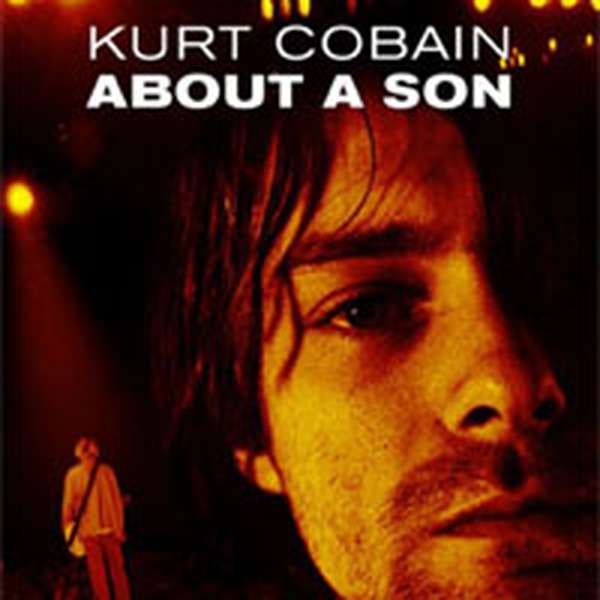Documentaries in this day and age have become a dime a dozen. Gone are the days of documentaries as an event i.e. waiting for the next Errol Morris or Michael Moore film. Gone are the days of limiting your subject matter to crime or war to catch an audience's interest. Given the proper direction, shown in the right context, a film about the national spelling bee or migrating penguins can have the same sense of immediacy as a documentary on the civil war.
Music documentaries are no different, but for every The Filth and the Fury or Gimme Shelter, we also have the "talking head" documentary. That is to say, interview footage of those who were there, many who weren't but through some six-degrees perspicacity are considered relevant enough to weigh-in with their two cents, and finally, the fans that only wish they were there. All of this is of course, usually interspersed with live or studio footage supplemented by footage of the artist(s) in a leisure setting.
About a Son is unlike any documentary you've seen before. It is not a film to entertain, it is not a film made as a call to arms. It is not a film about "the man and his music." It's a film about the man. The man in question of course, is Kurt Cobain who despite significant success as an artist in his lifetime was never truly understood. Granted, true understanding of someone is virtually impossible unless you've met them and spent time with them and therein lies the genius of AJ Schnack's film. It attempts to take the viewer into the mind of its subject and is successful in doing so.
Relying solely on audiotaped interviews conducted by Michael Azerrad for his book Come As You Are: The Story of Nirvana. Cobain is never seen in the film. His voice serves as narrator, taking the viewer through his life that is essentially divided into three parts. "Aberdeen," Cobain's birthplace in Washington State and his home throughout his teen years. "Olympia", where Cobain grew into a more self-assured artist, working with other musicians like The Melvins and forming the band that would become the band, and "Seattle," where it all blew up first in a good way (the fame), then a bad way (the backlash) and then the worst way, ending with Cobain's suicide in 1994. The interviews were all conducted between December 1992 and March 1993, usually in wee hours of the morning where Cobain lived in the Sand Point section of Seattle. Musical background ambience comes courtesy of Death Cab for Cutie's Ben Gibbard and Steve Fisk, along with favorite bands of Cobain's like The Vaselines.
The film is remarkably understated, particularly in the areas where so many have chosen to trivialize and sensationalize. Yes, he lived under a bridge as a teen. Yes, he had a heroin habit. Yes, he was married to Courtney Love. But the matter-of-fact way Cobain has of relaying the details show that there was nothing sensational about any of it. He was never a rock god or a generation spokesmodel. These were mere media accolades thrust upon a man who didn't want that responsibility.
About a Son can, at times feel forced but this can often be gauged in the cynicism of those watching. If you think that's just stock footage of some lumberyard as Cobain describes those days that he would go to work with his father, guess again. That's the lumberyard he would visit as a child. The high school. The Olympia apartment. The footage shown throughout the film can times seem random but this is often when Schnack has done the most research on his subject. Sometimes referencing subject matter Cobain spoke of previously or will be speaking of later on in the film.
Cobain's voice has a calm, precise cadence to it that really highlights the paradox between the man and the myth. It's easy to envision the shrieks, moans and wails for the music, but there's also a softness that never fades as when he assures Courtney, in the only other instance someone else's voice is heard (besides Cobain and Azerrad), that he won't forget to bring baby formula up for their daughter, Frances.
About a Son was created with the utmost respect and reverence for Cobain and any dramatic events in the man's life are treated as such - merely events retold in the first person. Not salacious drama or fodder for lesser filmmakers like Nick Broomfield. Stories of his parent's divorce, his and his wife's own drug use, unfair treatment by the press are not in any way told to elicit sympathy, only understanding of a man whose life ended far too soon.



